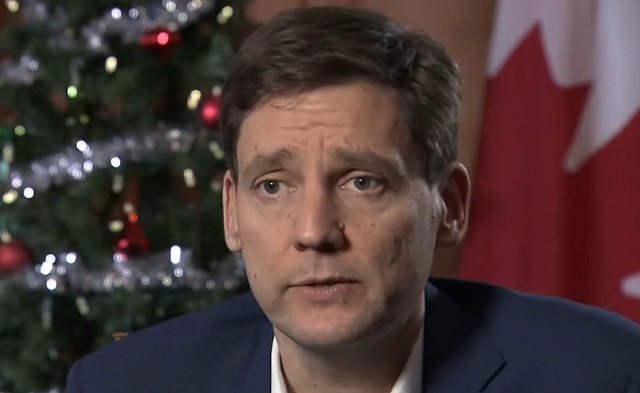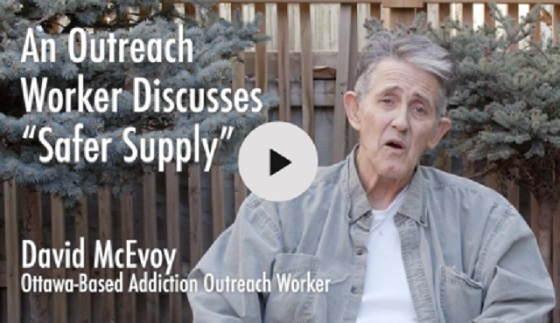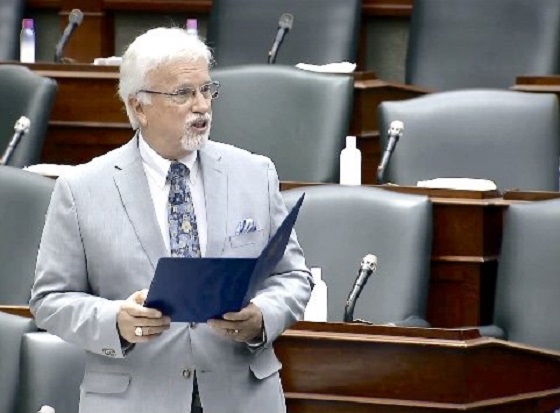Addictions
British Columbia should allow addicts to possess even more drugs, federal report suggests

From LifeSiteNews
Despite the drug crisis only getting worse in British Columbia after decriminalization, a federal report by the Canadian Institutes of Health Research advocates for further relaxing its policy so addicts can possess even more drugs.
Despite the drug crisis only worsening since decriminalization, federal researchers are now advocating for British Columbia to allow the possession of even larger quantities of cocaine, claiming that current possession limits don’t allow addicts to buy enough.
According to a federal report published April 23 by Blacklock’s Reporter, the current decriminalization program in British Columbia approved by Prime Minister Justin Trudeau’s government has set cocaine possession limits “too low.”
“People who use drugs are less concerned about being arrested and feel more comfortable carrying substances they need,” said the report by the Canadian Institutes of Health Research. “The threshold of 2.5 grams is too low and is unreflective of users’ substance use and purchasing patterns.”
Under the policy, which launched in early 2023, the federal government began allowing people within the province to possess up to 2.5 grams of hard drugs – including cocaine, opioids, ecstasy and methamphetamine – without criminal penalty, but selling drugs remained a crime.
The policy has been widely criticized, especially after it was found that the province broke three different drug-related overdose records in the first month the new law was in effect.
However, now researchers are claiming that the new policy is insufficient for drug users.
“People who use drugs indicated the 2.5 gram threshold is too low and unreflective of their substance use patterns,” the report stated. “Although some people indicated the policy wouldn’t impact their purchasing patterns because they are unable to purchase large amounts at a time, others suggested it may force them to seek out substances more frequently which could increase their risk of harms.”
“Buying in bulk may be more economical particularly for people who use drugs,” it continued, adding that it was “common practice to purchase in bulk and split or share among peers.”
The recommendation comes as deaths from drug overdoses in Canada have gone through the roof in recent years, particularly in British Columbia.
The effects of decriminalizing hard drugs in various parts of Canada has been exposed in Aaron Gunn’s recent documentary, Canada is Dying, and in U.K. Telegraph journalist Steven Edginton’s mini-documentary, Canada’s Woke Nightmare: A Warning to the West.
Gunn says he documents the “general societal chaos and explosion of drug use in every major Canadian city.”
“Overdose deaths are up 1,000 percent in the last 10 years,” he said in his film, adding that “[e]very day in Vancouver four people are randomly attacked.”
Similarly, even Liberals have begun to condemn Trudeau’s “safe supply” program, linking them to “chaos” in cities.
“Safe supply“ is the term used to refer to government-prescribed drugs that are given to addicts under the assumption that a more controlled batch of narcotics reduces the risk of overdose – critics of the policy argue that giving addicts drugs only enables their behavior, puts the public at risk, disincentivizes recovery from addiction and has not reduced, and sometimes even increased, overdose deaths where implemented.
Last week, Liberal MP Dr. Marcus Powlowski revealed that violence from drug users has become a problem in Ottawa, especially in areas near so-called “safe supply” drug sites which operate within blocks of Parliament Hill.
“A few months ago I was downtown in a bar here in Ottawa, not that I do that very often, but a couple of colleagues I met up with, one was assaulted as he was going to the bar, another one was threatened,” said Powlowski.
“Within a month of that I was returning down Wellington Street from downtown, the Rideau Centre, and my son who is 15 was coming after me,” he continued. “It was nighttime and there was someone out in the middle of the street, yelling and screaming, accosting cars.”
Addictions
British Columbia to re-criminalize hard drug use in public after massive policy failure

From LifeSiteNews
British Columbia premier David Eby announced that his province plans to re-criminalize hard drug use in public spaces after its decriminalization last year led to widespread social disorder.
British Columbia is asking the Trudeau government to roll back its drug decriminalization program after increased violence and continued overdoses.
On April 26, New Democratic Party (NDP) premier of British Columbia David Eby announced that he is working with Prime Minster Justin Trudeau’s federal government to re-criminalize drug use in public spaces, including inside hospitals, on transit, and in parks. British Columbia, under permission from the Trudeau government, had decriminalized such behavior in 2023.
“Keeping people safe is our highest priority,” Eby explained in a press release. “While we are caring and compassionate for those struggling with addiction, we do not accept street disorder that makes communities feel unsafe.”
“We’re taking action to make sure police have the tools they need to ensure safe and comfortable communities for everyone as we expand treatment options so people can stay alive and get better,” he continued.
Under the new regulations, police would be given the power to prevent drug use in all public places, including hospitals, restaurants, transit, parks and beaches.
However, drug use would remain legal at “a private residence or place where someone is legally sheltering, or at overdose prevention sites and drug checking locations.”
Eby’s concerns over drug use were echoed by Minister of Public Safety and Solicitor General Mike Farnworth who said, “Our communities are facing big challenges. People are dying from deadly street drugs, and we see the issues with public use and disorder on our streets.”
“As we continue to go after the gangs and organized criminals who are making and trafficking toxic drugs, we’re taking action now to make it illegal to use drugs in public spaces, and to expand access to treatment to help people who need it most,” he promised.
Beginning in early 2023, Trudeau’s federal policy, in effect, decriminalized hard drugs on a trial-run basis in British Columbia.
Under the policy, the federal government began allowing people within the province to possess up to 2.5 grams of hard drugs without criminal penalty, but selling drugs remained a crime.
While British Columbia has not yet indicated it plans to re-criminalize possession, its decision to clamp down on public drug use presents a major departure from its previous tactics of continually liberalizing its attitude toward narcotic use.
Since being implemented, the province’s drug policy has been widely criticized, especially after it was found that the province broke three different drug-related overdose records in the first month the new law was in effect.
The effects of decriminalizing hard drugs in various parts of Canada has been exposed in Aaron Gunn’s recent documentary, Canada is Dying, and in U.K. Telegraph journalist Steven Edginton’s mini-documentary, Canada’s Woke Nightmare: A Warning to the West.
Gunn says he documents the “general societal chaos and explosion of drug use in every major Canadian city.”
“Overdose deaths are up 1,000 percent in the last 10 years,” he said in his film, adding that “[e]very day in Vancouver four people are randomly attacked.”
Addictions
Must Watch: Addiction worker estimates 90% of “safer supply” drugs resold on black market

“It’s just… it’s created more addicts,” says David McEvoy, an Ottawa-based outreach worker who specializes in overdose prevention.
|
|
“Safer supply” refers to the practice of prescribing free recreational drugs as an alternative to potentially-tainted street substances. While advocates claim that this practice saves lives, David McEvoy, an Ottawa-based addiction outreach worker, says that approximately 90% of clients are reselling their taxpayer-funded drugs on the street, leading to new addictions and relapses.
His testimony is consistent with the testimony of dozens of addiction experts, former drug users, and youth. You can read a summary of his interview in the National Post here.
Our content is always free – but if you want to help us commission more high-quality journalism, consider getting a voluntary paid subscription.
-

 Business22 hours ago
Business22 hours agoUN plastics plans are unscientific and unrealistic
-

 Brownstone Institute1 day ago
Brownstone Institute1 day agoThe Teams Are Set for World War III
-

 Education19 hours ago
Education19 hours agoSupport a young reader through the Tim Hortons Smile Cookie campaign
-

 Alberta11 hours ago
Alberta11 hours agoAlberta threatens to fight Trudeau government restrictions on Canada’s plastics industry
-

 Automotive10 hours ago
Automotive10 hours agoCanadian interest in electric vehicles falls for second year in a row: survey
-

 Opinion23 hours ago
Opinion23 hours agoThe Climate-Alarmist Movement Has A Big PR Problem On Its Hands
-

 COVID-198 hours ago
COVID-198 hours agoFormer Canadian lawmaker has no regrets about refusing COVID shot despite losing his job
-

 COVID-1957 mins ago
COVID-1957 mins agoPeckford: Hallelujah! Supreme Court of Canada to hear Newfoundland and Labrador charter case

